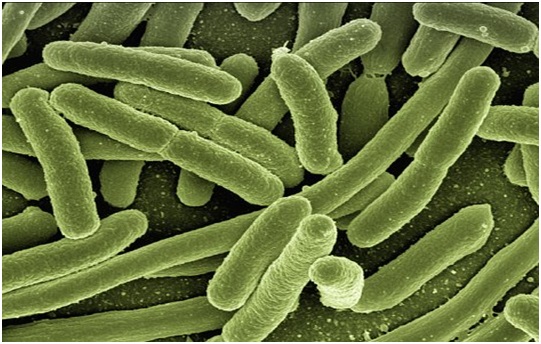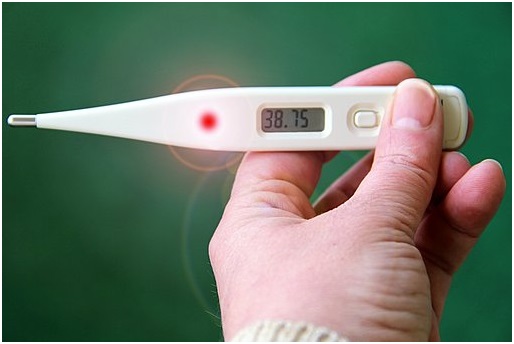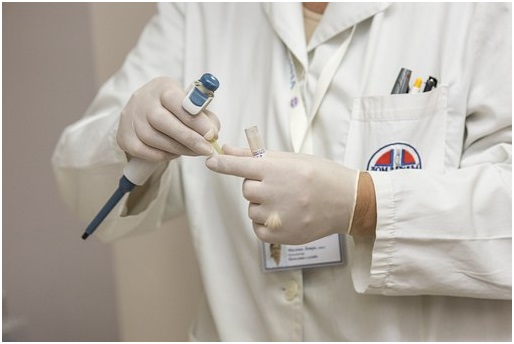
People work in all kinds of environments and due to the ever-rising costs of living, people sure take up all kinds of jobs. The thing is, even the most lucrative jobs have their own risks and disadvantages. While a job as a pilot is lucrative and well-paying, there’s always a risk that the plane may malfunction midair, however minor that would seem. Nonetheless, there are jobs that put the worker or employee at risk of contracting certain diseases due to exposure to pathogens, parasites or disease-causing microorganisms.
In most cases, these agents of disease are present in substances that are handled frequently by the employee. These may range from water to food, blood, waste, and fecal matter. For instance, Dr. Jay Davidson from Microbe Formulas warns that employees who work in daycare or health care facilities could get parasites from handling fecal matter. But the good news is, there are ways to protect yourself from infection by such parasites and pathogens, including ensuring that you always observe proper hygiene and sanitation as well as wearing protective gear always. But in a lengthier approach, what are some of these occupations that increase your risk of exposure to certain pathogens? Read on to discover some of them.
Nurses, doctors, therapists, and other healthcare workers

Many people, especially during their minor years in school dream of working in the healthcare industry as doctors, nurses, and caregivers in health facilities. Well, these are some of the best-paying and most lucrative jobs in many places, plus they also serve as a way to give back to society and care to others. All the same, nurses, doctors, therapists and other caregivers in healthcare facilities are constantly exposed to probably contaminated material.
They come into frequent contact with blood, fecal matter, and other materials, especially when collecting samples. Additionally, they risk contracting contagious diseases like TB when providing care to their patients or clients. Thankfully, there are good practice procedures and protocols that every healthcare worker knows that they should follow to minimize their risks of infection when handling their patients as well as contaminated material.
Garbage and waste handlers
Amid the cries of climate change and global warming, waste management and garbage collection have become a booming business in many parts of the world. However, workers in these occupations are advised to be extremely observant the way they handle garbage and waste. Some of it could be contaminated with parasites, bacteria, and even toxic agents that can result in fatalities within days if not hours in case it is ingested. It is advisable to always adhere to proper waste handling practices such as wearing protective gloves, Disposable 3 Ply Masks, shoes, and protective clothing.
Food industry workers
Food is one of the most common ways parasites and disease-causing agents are spread. This especially applies to some of the most common digestive system diseases such as typhoid, cholera, worms, and viruses such as hepatitis. Diseases such as cholera spread like wildfire and to avoid getting infected, one is advised to ensure proper hygiene and sanitation, drinking only treated water, and take food that is properly cooked after washing their hands. Unfortunately, workers in food restaurants, hotels, and other food industry settings are at the highest risk of contracting these diseases.
Sewerage company workers
Sewer waste is arguably the most contaminated material you can come across. It harbors bacteria, viruses, parasites, toxic chemicals, and all manner of harmful agents to your health. These are agents that can cause all manners of diseases, ranging from parasitic infections to diseases of the digestive system, and skin disease, among others. People such as plumbers who work in sewerage management companies are bound to come into contact with this contaminated wastewater and should, therefore, remain strictly adherent to standard safety procedures whenever at work in the field.
Daycare facility employees
Daycare workers are workers who provide care for children. Some of their tasks include monitoring, feeding, bathing, changing diapers, and dressing the kids. As hinted out earlier, these professionals are also at risk of contracting diseases and infections from the children they take care of. This is because they regularly handle mucus and fecal matter, not forgetting that skin contact is a common thing. Proper hygiene, sanitization, and sanitation are key in this business since a simple infection or parasite can spread really fast as children tend to get into physical contact with each other regularly while playing.
Research lab practitioners
People who work in research labs do handle a wide variety of samples and specimen material. Some of these samples may include blood specimens, fecal matter, body discharge, pus, sewage water, rotten food material, toxic chemicals, and much more. Especially blood, pus, bodily discharge, and feces, some specimens could be highly contaminated with parasites, microbes, and even viruses such as the HIV virus. A simple mistake or breach of the proper handling practices could cause infection to the researcher. This is why you see them wearing lab masks, white coats, gloves, and other protective gear.
Paramedics and first aid attendants
Just like doctors and nurses, a paramedic or first aid giver can find themselves handling blood, discharge, pus, and even fecal matter from the victim. This increases their risk of exposure to disease-causing agents.
Hospice workers and people working in mature homes
Our elderly folks are among the most important people in society, which is why due to the busy schedules of life, we choose to take them to mature homes where they can be taken good care of while we work. However, some of them depend on caregivers in these homes for bathing, dressing, and even when eliminating. This is not to forget that some of them could be terminally ill. In both cases, it puts these caregivers at risk of acquiring Disease from their patients.

Parasites, bacteria, viruses, and other pathogens can be anywhere. However, most of the ones that cause illnesses that are well known to man tend to linger in specific places or material that has been contaminated. Whether you’re working in one of the settings above or not, it is essential to observe proper hygiene always and take regular health checkups for a certainty that you have a clean bill of health.

